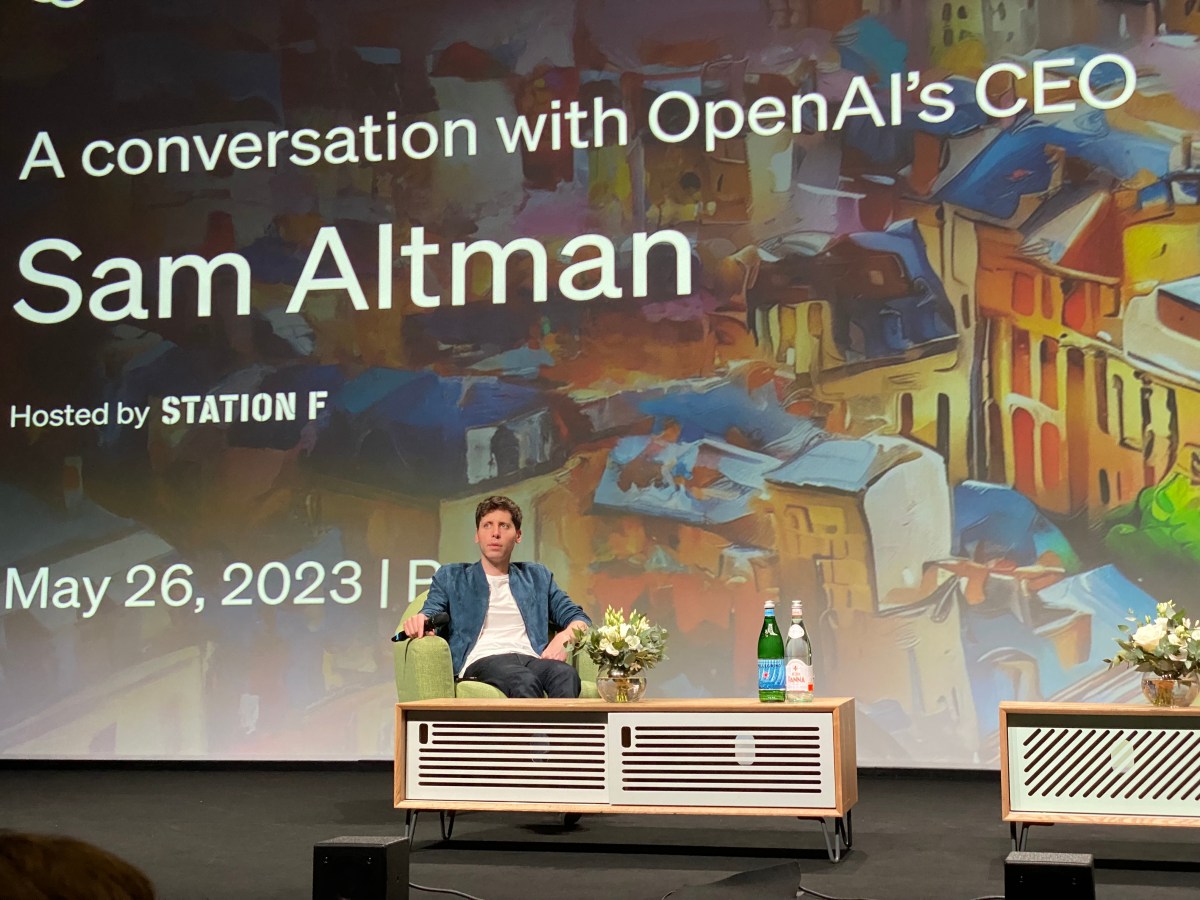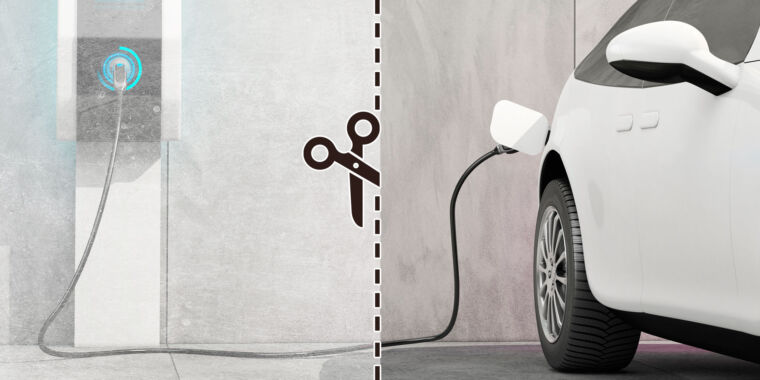Sam Altman shares his optimistic view of the future of AI
OpenAI CEO Sam Altman has been touring Europe in recent days, meeting with government leaders and startup communities to talk about AI regulation, ChatGPT and beyond. During his final stage appearance at Station F in Paris, Altman answered questions from local entrepreneurs and shared his views on artificial intelligence.
A few days ago, Altman met Emmanuel Macron. Station F director Roxanne Varza first asked him about the content of the conversation. As expected, the discussion mostly revolved around regulation. “It was great, we discussed how to find the right balance between protection with this technology and its development,” said Altman.
He then explained why he was traveling from one country to another at such a frenetic pace. “The reason to take this trip is to get out of the Bay Area tech bubble,” he said.
Altman then listed some of the reasons he's excited about the current state of artificial intelligence. According to him, the AI is having a moment because it's pretty good at a lot of different things, and not just one thing. For example, AI can be particularly useful in education and we could be on the verge of a major change in education around the world.
Of course, he also mentioned how useful GPT and other AI models have been in improving productivity in a wide variety of jobs, including software development.
The discussion then turned to regulation. A few days ago, at a similar event at University College London, Altman warned that excessive European regulation could lead OpenAI to leave the continent altogether. While he previously backtracked on Twitter, saying "we are delighted to continue operating here and of course have no plans to leave", he spent some time explaining his thinking. p>
"We plan to comply, we really like Europe and we want to offer our services in Europe, but we just want to be able to make sure that we are technically capable of it," Altman said.
>In this Q&A session, Altman came across as a radical optimist, saying there will be major technological breakthroughs (around nuclear fusion in particular) that will solve climate change in the near future. Likewise, he posed some tough questions to the audience, but he still believes that the pros of artificial intelligence far outweigh the cons.
"The discussion focused too much on the negatives," Altman said. "It seems like the balance has been struck considering all the value people are getting from these tools these days."
He again called for a "global regulatory framework" similar to nuclear or biotech regulation. “I think it's going to go to a good place. I think it's important that we do that. Regulatory clarity is a good thing,” he said.
Image credits: Romain Dillet / TechCrunch
Models of competition and improvementWhat's next for OpenAI? The roadmap is quite simple. Altman says the team is working on "better, smarter, cheaper, faster and more capable models."
The success of OpenAI and ChatGPT has also increased competition. There are other companies and AI labs working on large language models and generative AI in general. But Altman sees competition as a good thing.
"People compete for...

OpenAI CEO Sam Altman has been touring Europe in recent days, meeting with government leaders and startup communities to talk about AI regulation, ChatGPT and beyond. During his final stage appearance at Station F in Paris, Altman answered questions from local entrepreneurs and shared his views on artificial intelligence.
A few days ago, Altman met Emmanuel Macron. Station F director Roxanne Varza first asked him about the content of the conversation. As expected, the discussion mostly revolved around regulation. “It was great, we discussed how to find the right balance between protection with this technology and its development,” said Altman.
He then explained why he was traveling from one country to another at such a frenetic pace. “The reason to take this trip is to get out of the Bay Area tech bubble,” he said.
Altman then listed some of the reasons he's excited about the current state of artificial intelligence. According to him, the AI is having a moment because it's pretty good at a lot of different things, and not just one thing. For example, AI can be particularly useful in education and we could be on the verge of a major change in education around the world.
Of course, he also mentioned how useful GPT and other AI models have been in improving productivity in a wide variety of jobs, including software development.
The discussion then turned to regulation. A few days ago, at a similar event at University College London, Altman warned that excessive European regulation could lead OpenAI to leave the continent altogether. While he previously backtracked on Twitter, saying "we are delighted to continue operating here and of course have no plans to leave", he spent some time explaining his thinking. p>
"We plan to comply, we really like Europe and we want to offer our services in Europe, but we just want to be able to make sure that we are technically capable of it," Altman said.
>In this Q&A session, Altman came across as a radical optimist, saying there will be major technological breakthroughs (around nuclear fusion in particular) that will solve climate change in the near future. Likewise, he posed some tough questions to the audience, but he still believes that the pros of artificial intelligence far outweigh the cons.
"The discussion focused too much on the negatives," Altman said. "It seems like the balance has been struck considering all the value people are getting from these tools these days."
He again called for a "global regulatory framework" similar to nuclear or biotech regulation. “I think it's going to go to a good place. I think it's important that we do that. Regulatory clarity is a good thing,” he said.
Image credits: Romain Dillet / TechCrunch
Models of competition and improvementWhat's next for OpenAI? The roadmap is quite simple. Altman says the team is working on "better, smarter, cheaper, faster and more capable models."
The success of OpenAI and ChatGPT has also increased competition. There are other companies and AI labs working on large language models and generative AI in general. But Altman sees competition as a good thing.
"People compete for...
What's Your Reaction?





















